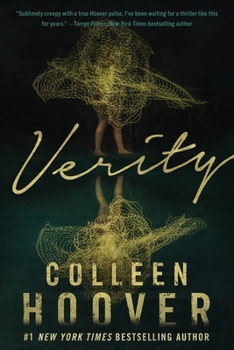“Cue the Sun!” The Invention of Reality TV
Book Review: “Cue the Sun!” by Emily Nussbaum
Pages: 464
Rating: ★★★★☆ (4/5)
Emily Nussbaum, a Pulitzer Prize-winning television critic, brings her incisive analytical skills to *Cue the Sun!*, a comprehensive exploration of reality television’s evolution and cultural impact. Known for her previous book, *I Like to Watch: Arguing My Way Through the TV Revolution*, Nussbaum continues her nuanced critique of media, this time delving into the polarizing and pervasive genre of reality TV.
—
Overview
In Cue the Sun!, Nussbaum traces the trajectory of reality TV, beginning with its roots in radio and early TV programs like Candid Camera and The Newlywed Game*. From these origins, the genre expanded into groundbreaking shows like PBS’s *An American Family in the 1970s, widely regarded as one of the first reality TV programs, and later cultural phenomena like Survivor and Big Brother. The book also discusses the rise of “voyeuristic” reality staples such as The Real Housewives franchise and The Bachelor.
Nussbaum’s narrative relies heavily on interviews with over 300 insiders, including network executives, producers, and cast members, creating a vivid oral history. These voices illustrate the genre’s chaotic creativity and the ethical dilemmas faced during production. Her storytelling highlights both the genre’s innovation and its controversies, such as exploitative casting and manipulation behind the scenes.-
Strengths
Nussbaum excels in presenting a balanced view of reality TV, avoiding the extremes of dismissing it as lowbrow entertainment or overpraising its artistic value. For instance, she explores the cultural significance of Survivor, describing its infamous first season as a survival tale full of literal and figurative challenges, such as contestants enduring harsh wilderness conditions and cutthroat alliances.
One of the book’s standout chapters discusses An American Family, a pioneering 1973 PBS documentary series that exposed the personal struggles of the Loud family, including infidelity, divorce, and a young son coming out as gay. This show set the template for future reality TV by blending authenticity with the drama of fiction. Nussbaum carefully examines how these early efforts shaped public perceptions of reality TV, emphasizing the tension between voyeurism and storytelling.
Additionally, she addresses criticisms of modern reality TV’s exploitation, as seen in programs like *Queer Eye for the Straight Guy*. Nussbaum incorporates perspectives from marginalized communities, showcasing how reality TV often reflects and amplifies societal biases, while also creating space for representation.
Critiques
While Cue the Sun! is engaging and richly detailed, it occasionally leans too heavily on insider accounts, lacking external analysis or counterpoints in some instances. For example, while Nussbaum illuminates the motivations of participants and creators, deeper exploration of audience reception and sociopolitical implications would have strengthened the narrative. Furthermore, the book could benefit from a clearer structural thread, as its anecdotal style sometimes makes it feel scattered.
Notable Examples from the Book
-The Real World: Nussbaum analyzes the 1992 MTV hit as a cultural milestone that redefined reality TV, mixing intimate storytelling with social commentary.
– Survivor: The description of season one is a standout, detailing the physical and psychological toll on contestants while highlighting the show’s role in popularizing competitive reality formats.
– An American Family: Through the experiences of the Loud family, Nussbaum explores how reality TV confronts traditional family values, serving as a mirror to societal changes.
–
Conclusion
Cue the Sun! is a must-read for fans of television history and media studies. Nussbaum’s thoughtful analysis invites readers to view reality TV through a critical yet appreciative lens, recognizing it as both a reflection of and a force shaping contemporary culture. While the book isn’t without its flaws, it succeeds in presenting the genre as a complex, evolving medium that deserves more than dismissal or derision.
For those who enjoy Nussbaum’s work, her earlier book, I Like to Watch, is another excellent read that dives into television criticism more broadly. Cue the Sun! offers a fresh perspective on a genre often ignored in serious media discourse, making it an essential addition to any pop culture enthusiast’s bookshelf.



